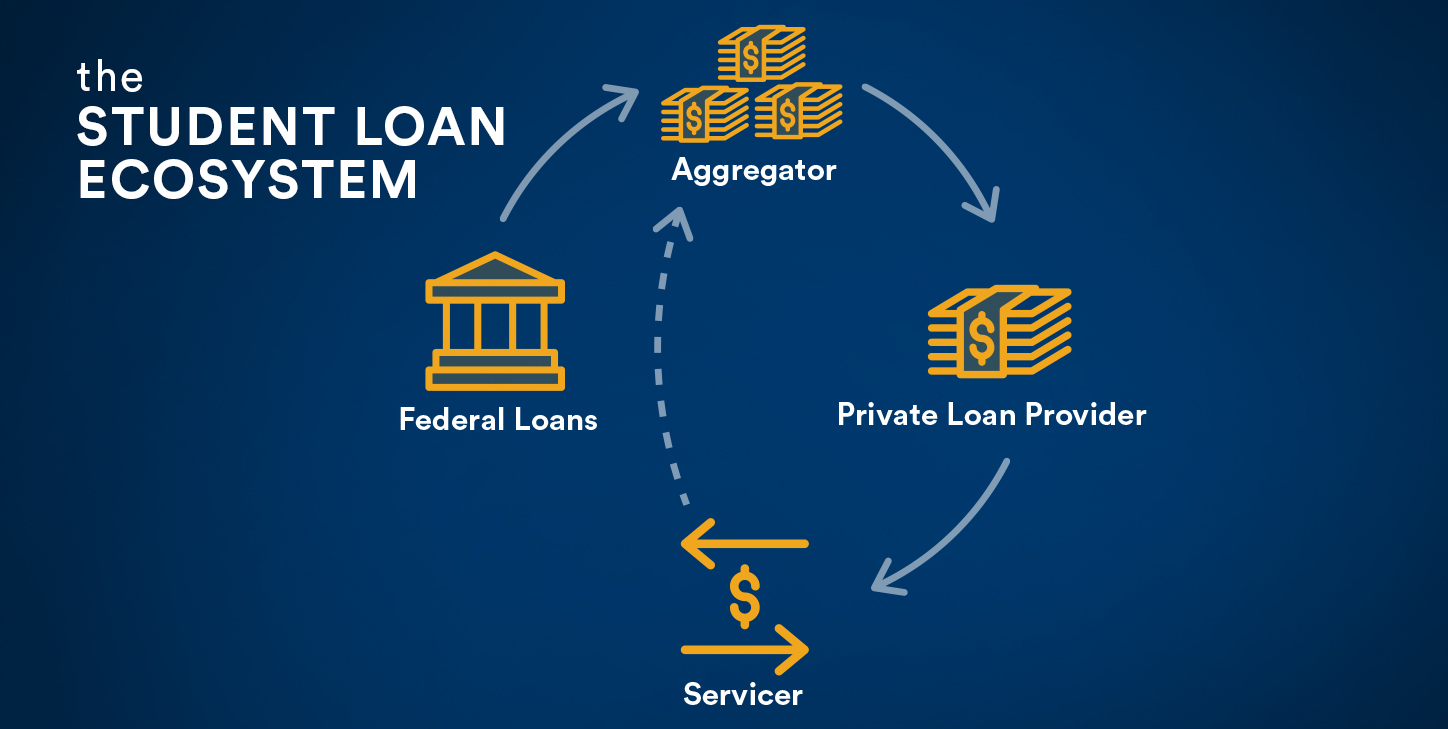How Cash Loans provide easy access to essential funds
Wiki Article
A Comprehensive Guide to Home Loans: Provider and Options Explained
Charting the world of home finances can be complicated. Numerous choices exist, each with unique attributes and implications for prospective homeowners. Recognizing the distinctions in between conventional and government-backed fundings is essential. The application procedure involves meticulous documents and pre-approval actions that several neglect. As consumers begin on their home-buying journey, understanding exactly how to take care of these duties effectively can imply the distinction in between economic stability and challenge. What strategies can empower them on this path?Understanding Home Loans: Kinds and Terms
Understanding the various types of mortgage and their linked terms is vital for prospective house owners, as it furnishes them with the knowledge required to make educated financial decisions. Home car loans can be extensively classified right into fixed-rate and adjustable-rate mortgages. Fixed-rate home loans maintain a regular rate of interest over the life of the funding, giving security in regular monthly repayments. Cash Advance. Conversely, variable-rate mortgages feature rate of interest prices that might rise and fall after a preliminary set period, potentially resulting in lower preliminary payments yet boosted future expensesAdded terms is necessary for quality. Principal describes the car loan amount obtained, while interest is the price of borrowing that quantity. The term of the loan suggests its duration, usually ranging from 15 to thirty years. Comprehending these essential concepts enables possible purchasers to navigate the complex landscape of home financing, ensuring they choose the appropriate funding option that lines up with their economic scenario and lasting goals.
Conventional Car Loans vs. Government-Backed Loans
A substantial distinction in home funding exists between government-backed fundings and conventional finances, each dealing with different debtor needs and situations. Conventional fundings are not insured or assured by the government and commonly require greater credit report ratings and deposits. They are frequently appealing to debtors with secure economic histories, as they might offer affordable rate of interest and terms.In comparison, government-backed lendings, such as FHA, VA, and USDA loans, are created to assist certain teams of customers, including new homebuyers and veterans. Cash Loans. These car loans normally feature lower deposit demands and even more adaptable debt standards, making them available to a wider variety of individuals
Inevitably, the option in between government-backed and conventional finances depends upon the borrower's financial situation, lasting goals, and eligibility, making it important to thoroughly examine both options before deciding.

The Function of Rate Of Interest Rates in Home Funding
Rates of interest play an essential duty in home financing, influencing debtors' decisions between set and variable price finances. The selection in between these choices can significantly influence monthly payments, influencing general price. Recognizing how rate of interest function is necessary for any individual maneuvering with the home finance procedure.Fixed vs. Variable Prices
Property buyers encounter a crucial decision when picking in between fixed and variable rates, as this selection significantly impacts the cost of financing with time. Fixed-rate home loans offer security, securing a rates of interest for the life of the funding, which can be beneficial in a rising rate of interest environment. This predictability enables home owners to spending plan better. On the other hand, variable-rate mortgages, or adjustable-rate home mortgages (ARMs), typically begin with reduced initial prices that can vary based on market problems. While this may bring about lower initial repayments, debtors encounter the danger of raised prices in the future. Inevitably, the choice between variable and set rates depends upon specific economic situations, threat resistance, and assumptions regarding future rates of interest patterns.Impact on Monthly Repayments
When evaluating home funding options, the effect of rate of interest on monthly repayments is a crucial aspect to ponder. Rates of interest directly affect the overall expense of loaning, influencing just how a lot a customer will pay every month. A reduced rate of interest price lead to smaller month-to-month payments, making homeownership much more budget-friendly. Conversely, higher rates can substantially enhance regular monthly responsibilities, possibly stressing a homeowner's budget plan. In addition, the financing term plays a vital role; longer terms may spread payments out however can result in paying more interest gradually. Recognizing just how rates of interest engage with finance quantities and terms is necessary for debtors to make enlightened economic choices and choose a mortgage that aligns with their long-lasting financial goals.Home Mortgage Brokers vs. Direct Lenders: Which Is Right for You?
When considering a mortgage, prospective customers need to comprehend the distinctive duties and responsibilities of mortgage brokers and straight lending institutions. Each choice presents its own benefits and downsides, which can significantly influence the total cost of funding. An educated selection calls for careful analysis of these factors to identify the finest suitable for individual demands.Duties and roles Specified
Maneuvering the intricacies of home financing requires a clear understanding of the duties and duties of home loan brokers and straight lenders. Home mortgage brokers serve as middlemans, linking customers with loan providers. They evaluate a borrower's economic situation, curate finance alternatives, and guide clients via the application procedure, commonly leveraging several lending institution connections to protect positive terms. On the other hand, straight lenders, such as banks and credit report unions, offer financings directly to customers. They manage the whole lending process, from application to financing, with an emphasis on their own items. Each alternative presents distinctive opportunities for obtaining financing, making it important for debtors to examine their choices and requirements when deciding in between involving a home mortgage broker or functioning with a straight lender.Pros and Cons Comparison
Picking between a home loan broker and a direct loan provider can considerably influence the home financing experience, as each option offers unique benefits and drawbacks. Mortgage brokers function as intermediaries, offering access to numerous lenders and potentially much better prices, while streamlining the finance procedure. Nonetheless, they may bill fees and count on commission frameworks that might influence their referrals. On the other hand, straight lenders streamline the procedure by using in-house loans, which can cause quicker authorizations and less difficulties. On the other hand, they may have a minimal option of products and much less flexibility regarding pricing. Eventually, the decision rests on private preferences, monetary situations, and the preferred level of assistance throughout the home mortgage journey.Expense Implications Evaluated
While assessing the price effects of home loan brokers versus direct loan providers, prospective homeowners must consider numerous factors that can his comment is here greatly influence their overall expenses. Home loan brokers commonly bill costs for their services, which can vary significantly, influencing the total funding price. They commonly have access to a larger variety of lending products and affordable prices, potentially saving borrowers cash in the long run. On the other hand, direct loan providers may supply a more simple procedure with perhaps reduced upfront costs, yet their loan options may be limited. It is vital for home owners to compare rate of interest rates, charges, and terms from both brokers and lending institutions, ensuring they make an informed choice that straightens with their economic goals and needs.The Home Finance Application Refine: What to Expect

The home mortgage application process can typically really feel intimidating for lots of applicants. It usually starts with collecting needed paperwork, including proof of income, credit score background, and individual recognition. Lenders utilize this info to analyze the candidate's monetary stability and figure out finance qualification.
Next, applicants send an official application, which might include submitting on the internet types or offering details personally. Throughout this stage, lending institutions examine various factors, such as debt-to-income ratio and credit history, to select car loan terms.
When pre-approved, the lender will certainly perform a complete appraisal of the property to determine its value lines up with the loan quantity. This stage may likewise include added background checks.
you could check here

After last approvals and conditions are satisfied, the finance is refined, leading to the closing stage. Recognizing each step empowers applicants, making the journey smoother and much more workable as they relocate toward homeownership.
Tips for Handling Your Home Car Loan Properly
Efficiently navigating the home mortgage application process is just the start of a liable financial trip. Managing a mortgage calls for focus to numerous key practices. First, debtors ought to develop a clear budget plan that suits month-to-month mortgage settlements, real estate tax, and insurance. On a regular basis examining this budget aids avoid overspending and guarantees prompt payments.Additionally, making extra settlements when feasible can considerably lower the funding principal and complete passion paid in time. Borrowers need to likewise keep open lines of interaction with their loan provider, particularly in times of economic problem. This can result in potential options such as finance modifications or re-financing alternatives.
Ultimately, it is a good idea to keep track of credit report consistently. A great credit history can supply chances for better loan terms in the future. Fast Cash. By adhering to these ideas, house owners can browse their car loan responsibilities effectively, assuring long-lasting economic wellness and security
Often Asked Concerns
What Are Closing Costs and Just How Are They Determined?
Closing expenses include fees connected with wrapping up a mortgage, including evaluation, title insurance coverage, and loan origination fees. These expenses commonly vary from 2% to 5% of the finance quantity, differing based on place and lender.Can I Receive a Home Car Loan With Bad Credit Scores?
Yes, people with bad credit report can get a mortgage, though alternatives may be limited. Lenders frequently require greater deposits or rate of interest, and checking out government-backed financings might boost possibilities of authorization.What Is Mortgage Insurance and When Is It Called for?
When a consumer makes a down repayment of much less than 20%, mortgage insurance coverage protects loan providers against default and is usually required. It guarantees that lending institutions recuperate losses if the customer fails to pay off the loan.How Does Refinancing Job and When Should I Consider It?
Refinancing involves changing an existing home mortgage with a new one, usually to secure a reduced rates of interest or adjustment funding terms. you could try this out House owners must think about re-financing when rates of interest drop significantly or their financial situation improves.What Happens if I Miss a Home Mortgage Settlement?
If a home loan settlement is missed out on, the loan provider commonly assesses late costs, reports the delinquency to credit score bureaus, and may launch repossession process if settlements continue to be disregarded, eventually jeopardizing the property owner's property.Fixed-rate home loans preserve a constant rate of interest rate over the life of the finance, supplying stability in month-to-month payments. A considerable difference in home financing exists in between standard loans and government-backed fundings, each providing to various consumer requirements and scenarios. In contrast, government-backed fundings, such as FHA, VA, and USDA fundings, are made to aid certain teams of consumers, including newbie buyers and experts. Rate of interest rates play a vital role in home financing, affecting customers' choices between set and variable rate finances. Fixed-rate home loans provide security, locking in a passion rate for the life of the finance, which can be helpful in a rising passion price environment.
Report this wiki page